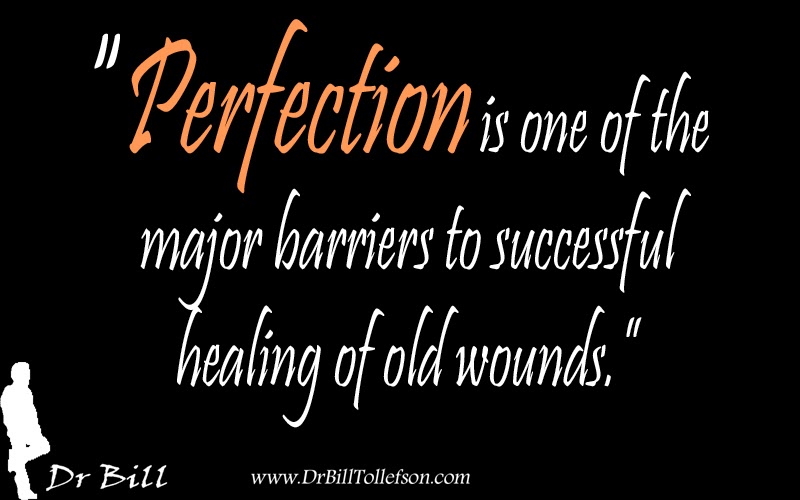11 Signs of Perfectionism
The biggest misconception in a post abusive or traumatic world is that “all good and powerful things come from perfection.” Perfection is not and will never be the answer or the truth about being safe or protected.
The truth about perfection is that perfection is the killer of mindfulness, happiness, healing, and growth. Striving to be perfect or have a perfect life is like trying to find the pot of gold at the end of the rainbow. For millions of survivors of abuse and trauma, that being perfect would have been the salvation all those situations would have never occurred.
The truth about perfection is that perfection is the killer of mindfulness, happiness, healing, and growth. Striving to be perfect or have a perfect life is like trying to find the pot of gold at the end of the rainbow. For millions of survivors of abuse and trauma, that being perfect would have been the salvation all those situations would have never occurred.
Survivors are convinced … beyond a shadow of the doubt … that if they were perfect and had done everything in their life perfectly, then they would never have been abused, beaten, raped, rejected, sexually invaded, or mentally and emotionally tortured.
Nothing could be further from the truth. The issue of perfectionism is huge with a lot of survivors. I have observed this perfectionist thinking over decades of working with survivors with Dissociative Disorders and Post-traumatic Stress Disorder. When survivors are initially asked the question … Are you a perfectionist? … 98% of the survivors answered that it was their number one objective. Perfection to these people equals safety. “If I were perfect, then nothing bad would happen.”
Survivors feel that performing right, correctly or perfectly is the answer to being stronger and keeping safe.
By definition, perfection is entirely free from faults or defects. Inherently, survivors strain compulsively and unceasingly toward being perfect and measure their self-worth, self-value, looks and productivity by the same incredible standard. Unfortunately, perfection is an unobtainable goal. Over time, the need for perfection drives their reactions to every aspect of life. Survivors put a significant amount of pressure on themselves. They over expect how they should perform in all aspects of life. In the end, this predictably sets him or her up for crushing disappointment. Due to the inability to achieve perfection, survivors tend to have an extremely critical and judgmental “inner critic.” When failure is realized, then anger, doubt, impatience, and worry sets in harshly.
To begin a successful post-trauma healing journey, survivors need to recognize that being perfect and having a perfect life is an unrealistic goal.
11 Signs of Perfectionism from Traumatic Situations
Below are eleven (11) signs that you are possibly a perfectionist due to abusive or traumatic situations. Once recognition is achieved, then the warning signs will lose power and influence.
Do you recognize any of these eleven (11) signs in yourself?
1. Always anxious but don’t know why
2. Constantly in a state doubtfulness
3. Continuously impatient
4. Fearful of the results of anything because you might be wrong
5. Forever procrastinating
6. Frequently stressed over nothing
7. Over expecting to the point of disappointment
8. Romancing memories of past pain
9. Under assessing all accomplishments, abilities, skills, value
10. Worrying about how you will perform in the future
11. Focused on nothing anyone else does is good enough
11. Focused on nothing anyone else does is good enough
Don't be a slave to diluted thoughts that if you had only been "perfect" nothing of what happened to you would have and that being perfect is the answer to being safe and protected.
Take Away
Safety and protection of yourself come from within you. What keeps you safe and protected is your inner power. Your personal power is your inner knowledge which manifests outwardly by way of your confidence, creativeness, intelligence, mindfulness, energy, resilience, resourcefulness and strength of character. Simply, safety and protection are achieved through the ability to love yourself fully, and healing will naturally occur.
Safety and protection of yourself come from within you. What keeps you safe and protected is your inner power. Your personal power is your inner knowledge which manifests outwardly by way of your confidence, creativeness, intelligence, mindfulness, energy, resilience, resourcefulness and strength of character. Simply, safety and protection are achieved through the ability to love yourself fully, and healing will naturally occur.



Comments
Post a Comment